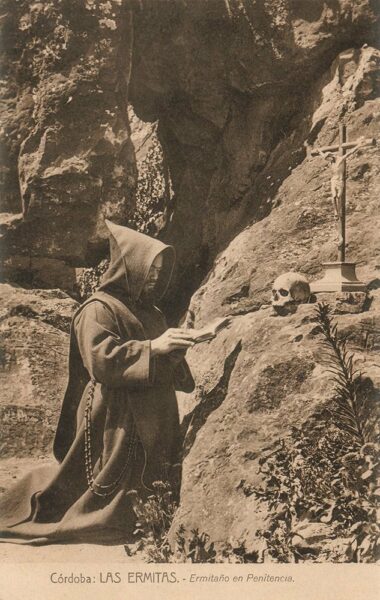When I first started listening to an exorcist’s talks on the link between Marxism and demons’ psychology, I came to the conclusion that narcissism was a major trait of demons and those on the left. However, the more I study Marxism and demonology, the more I started that narcissism was not simply one of the psychological aspects of those groups, but rather the central tenet to those groups. I recently saw that again in an attack on me on Twitter from some leftist “Catholics” this last weekend. People just sent me screenshots of the Tweets against me but I didn’t spend much time on X.
Keep in mind that narcissism is not simply vanity. Rather, at its core, narcissism contains an insecure person. This leads the narcissist to be hungry for any validation and he places entitlement where there should be empathy. The narcissist’s inadequacy ironically leads to grandiosity, but in a superficial manner. Their lives are marked by jealousy and gaslighting, lying and manipulation. They will use exploitation more than rage, but occasionally the later. Narcissists lack responsibility and repentance, but sometimes display shame if it’s beneficial to social advance.
I am not saying demons have every mental disorder. Demons are not psychotic or bi-polar as much as they are narcissistic. The more I study the occupiers of illegitimate-regimes pretending to be important members of Church and State (and those who defend them) the more I see nearly all of them are specifically narcissistic.
How then can one prevent oneself from becoming a person who places entitlement where there should be empathy? How then can one avoid grandiosity while still aiming for excellence? I think the answer comes from St. Paul who wrote this about a specific struggle:
So to keep me from becoming conceited because of the surpassing greatness of the revelations, a thorn was given me in the flesh, a messenger of Satan to harass me, to keep me from becoming conceited. Three times I pleaded with the Lord about this, that it should leave me. But he said to me, “My grace is sufficient for you, for My power is made perfect in weakness.” Therefore I will boast all the more gladly of my weaknesses, so that the power of Christ may rest upon me. For the sake of Christ, then, I am content with weaknesses, insults, hardships, persecutions, and calamities. For when I am weak, then I am strong.—2 Cor 12:7-10.
Let’s unpack that. Notice the narcissist always feels his inadequacy, but he is never able to admit it, so he seeks external validation for the interior wound. St. Paul on the other hand, openly boasts of his weakness. This is not because weakness is so wonderful, but rather because by the end of his life, St. Paul could claim it is no longer I who live, but Christ who lives in me.—Gal 2:20. In other words, Christ’s power has replaced St. Paul’s own weakness. One of a dozens reasons is because St. Paul owned it. (I’m no St. Paul, but I go to confession twice a week, and I frequently tell even my lay friends about my failures in the moral life—like needing a Gin and Tonic to fall asleep most nights.)
St. Paul’s above section on boasting on weakness above to the Corinthians is not to say that you should confess every one of your sins in public to all your friends and enemies, but it is to say you should interiorly own all your weakness. (Of course, all mortal sins should be confessed to a priest.) But we’re talking about public attitudes here. In addition to this interior ownership, one should sometimes be transparent about certain failures, as St. Paul was to the Corinthians above.
I have read both of Jocko Willink’s best-selling books, Extreme Ownership and The Dichotomy of Leadership. I certainly don’t believe his books are inspired like the Bible, but in some sense, the philosophy of “Extreme Ownership” is found in the passage a couple paragraphs up in 2 Cor 12: Owning one’s mistakes almost always leads to growth. For St. Paul, this is spiritual and human. For Jocko, this is leadership. Both are great, but I’m a priest, so I’m talking mainly about the spiritual aspect. Notice in light of both, the narcissist can occasionally make a self-deprecatory joke (perhaps to get narcissist-immune-persons off their trail) but ultimately the narcissist can never own his or her weakness, sins, mistakes or failures.
The Christian can own one’s particular sins and failures for a few reasons. First, it is because we have a Crucified Savior to make expiation for our sins on the cross. If we confess our sins, he is faithful and just to forgive us our sins and to cleanse us from all unrighteousness. If we say we have not sinned, we make him a liar, and his word is not in us.—1 John 1:9-10.
Secondly, we must remember that our goal not to sneak into heaven by the skin of our teeth, but to be transformed in Christ, even on earth. Remember that right after St. Paul admitted, “I will boast all the more gladly of my weaknesses” that he immediately added a reason: “So that the power of Christ may rest upon me.” Transformation in Christ—rather into another christ—is the ideal. The Eastern Fathers call this theosis, or divinization: His divine power has granted to us all things that pertain to life and godliness, through the knowledge of Him who called us to His own glory and excellence, by which He has granted to us His precious and very great promises, so that through them you may become partakers of the divine nature, having escaped from the corruption that is in the world because of sinful desire.—2 Peter 1:3-4.
Thirdly, some mild insecurity found within the non-narcissistic Christian gets easily sublimated into self-detracting humor, especially when you start to care little for what the world thinks about you. In fact, you almost start to see opinion-polls as inversely proportional to pleasing God when you study the Gospel closely: Woe to you, when all people speak well of you, for so their fathers did to the false prophets.—Luke 6:26 and Blessed are those who are persecuted for righteousness’ sake, for theirs is the kingdom of heaven.—Mt 5:10.
It’s a good sign American leftists called me a “schismatic” in my support of Archbishop Viganò this weekend. To be torn (the definition of schismatic) from an apostate (one who has publicly denied Christ) is a compliment to anyone’s orthodoxy. I wear it as a badge of honor. Why? Because no one can be “a schismatic” in reference to an objective apostate. It’s absolutely impossible, even by all definitions of theological crimes for 2000 years.
You know, I have few reasons to believe I’m on the right track, but the fact so many heretics on X call me a “schismatic” (or so I am told by friends with screenshots of me) is one of the few indications I am indeed on the right track to Christ. But even that doesn’t mean much, for as St. Francis of Assisi said: “What you are in God’s sight is what you are—and nothing more.”

